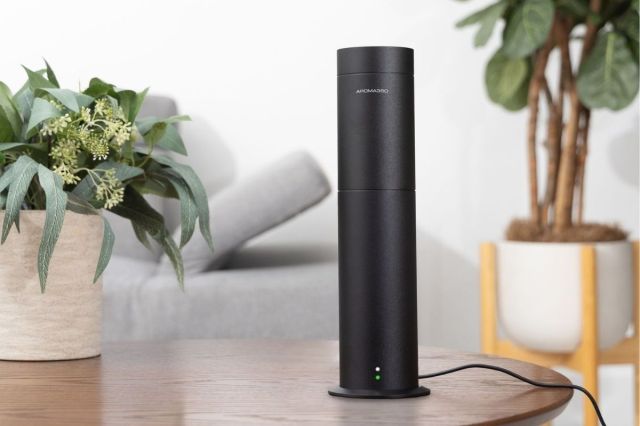Youth isn’t just skin deep; like our bodies, our brains can age more or less depending on our lifestyles, habits, and diets. Moreover, keeping our brains youthful seems far more important than a few smile lines, right? Fortunately, there are relatively easy ways to slow the brain’s aging process and foster a healthier mind. By understanding common habits that can prematurely age your brain, you can make positive changes to better control your health and overall well-being.

You Overindulge in Alcohol
Having a glass of wine with a friend or a cocktail at a birthday party is undoubtedly a fun way for many of us to socialize and celebrate. Alcoholic beverages are so ingrained in our culture that many don’t think twice about indulging in a few during a night out, but here’s why you should forgo your weeknight beers or glasses of wine for something non-alcoholic. Alcohol is one of the most significant components of premature aging of the brain.
According to the Alzheimer’s Society, over time, drinking too much alcohol causes brain cells to die, literally shrinking the brain tissue. With fewer brain cells available to carry messages and perform tasks, daily life becomes more difficult. This can happen from drinking regularly or from drinking more than the recommended daily limit. However, by understanding the importance of moderation, you can take control of your brain health. The recommended daily alcohol limits are one standard drink for women and two for men. A standard drink is typically equivalent to a 12-ounce beer, a 5-ounce glass of wine, or a 1.5-ounce shot. The weekly limits are seven and fourteen, respectively.

You Stay in All the Time
Passing on a night out is fine. Everyone needs a rest or a mental health break occasionally. But don’t skip out too often. Studies have found that not having enough social interaction can age your brain. This idea is supported by studies of Blue Zones, that is, communities worldwide whose residents most often live to be 100. One of the common factors between all these communities is that socializing is a vital part of their culture, suggesting that it helps them live longer.
Furthermore, a recent study published in the Frontiers in Aging Neuroscience journal found that social isolation and loneliness were associated with poor cognitive aging. So, whether it is a game night at a friend’s house, a family dinner, or a big event, push yourself to say “yes” to spending time with loved ones. You’ll have fun, and these social interactions will also benefit your brain.

You Love Junk Food
What’s your junk food Achilles’ heel? Everyone has one — fried foods, sodas, candies, and chips are common culprits. Unfortunately, kicking a junk food habit is tricky, mainly because it’s so accessible while you’re on the go. But here’s why you might want to rethink your daily drive-thru habits. Neuroscientist Dr. Amy Reichelt explains that junk food is addictive because it activates the reward system in our brains and releases dopamine, making us feel good — we love eating tasty treats. However, overly sweetened and fatty foods are bad for the brain.
Dr. Reichelt says that high levels of sugar and fats can inflame the brain, damaging brain cells. One study showed that just five days of eating sugary sweets caused measurable brain inflammation. Damage to the brain’s hippocampus has also been reported, which can lead to memory loss and inhibited learning capabilities. Lastly, the inflammation can hinder the creation of new neurons in the brain, which further ages it. When choosing your meals and snacks, remember you’re fueling your body and brain for years to come, not just for the few minutes it takes you to finish that piece of cake.
Reader Favorites

You Skip the Gym
With streaming platforms and social media galore, it’s becoming easier and easier to opt for a night in front of a screen. Unfortunately, this habit of slumping on the couch immediately after work isn’t the healthiest choice. Working out is one of the best things you can do to keep your brain and the rest of your body healthy through all stages of adulthood. A study published in Neurology Clinical Practice revealed the cognitive impact of physical exercise. Physical exercise promotes learning, planning, concentrating, and maintaining a clear, active mind. It also counteracts the effects of cognitive aging.
Neuropsychologist Aaron Bonner-Jackson, PhD, also emphasizes the importance of physical exercise for the brain. “In general, even in people who are at risk for development of Alzheimer’s or other dementias, can stave off decline in some cases for many years and help people function better.” This is encouraging news for those with genetic predispositions and anyone looking to bolster their brain health. If you were looking for a sign to go to the gym this week, this is it!

You Don’t Switch Up Your Routine
Is your daily routine in the doldrums? Or maybe you haven’t even noticed it was until now. While having a fixed schedule helps many people with their productivity, the mundane can cause premature brain aging. If ripping up your planner sounds like torture, try this. Block off a few hours once or twice a week for “free time” to spontaneously decide what you’ll do. This keeps your brain excited and motivated. According to Harvard Medical School, challenging your brain with new mental exercises helps maintain the health of brain cells and stimulates connection among them. During your newly allotted “free time,” try these Harvard-recommended activities for brain health: try a new hobby, learn a new skill or language, volunteer, or mentor.

You Sacrifice Sleep
Here’s a new sleep motto to promote a healthier brain: Seven hours a day keeps aging at bay. Getting the doctor-recommended amount of sleep per night works wonders on your mental and physical health, and according to new research, it bodes well for long-term brain health, too. A study at the University of Zurich revealed that sleep loss can cause changes to the brain that would typically be age-related.
However, after a full night’s sleep, the same participants saw their brain’s estimated “age” change again, suggesting that even one night of missed sleep impacts brain aging tremendously. This is because sleep gives the brain a break. It needs this downtime to cleanse itself of toxins, reorganize, store memories, and form new connections. Without sleep, it can’t function properly. If your sleep habits aren’t up to par, let this be your sign to nail down a nighttime routine and aim to get more rest.
More From Our Network
Better Report is part of Inbox Studio, an email-first media company. *Indicates a third-party property.
















